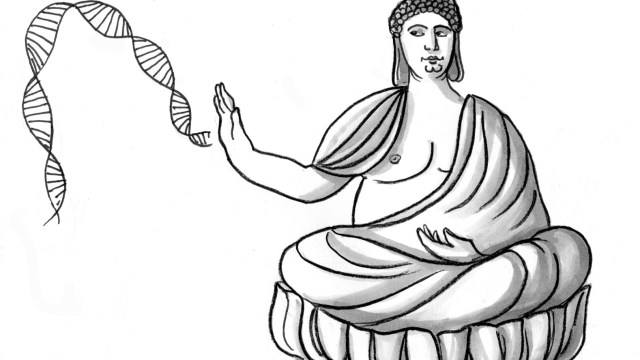You Can’t Sweat Out Toxins. That Doesn’t Mean Sweating Isn’t Good For You.

Twice a week I teach a heated yoga class in Hollywood. While I was initially skeptical about accepting these classes, when I realized the room reached a high of 85 degrees and fans were required throughout class, my concerns were alleviated. That’s warm, but nothing like the hundred-plus degree rooms marketed as weight loss and flexibility gaining havens by yoga chains.
A little bit of heat is a nice way to get a body warm. The problem with a lot of it—one of the problems, as there are a few—is that you often trick yourself into thinking you’re doing a lot of work when really, it’s just the heat. I’ve witnessed a number of new yogis in Bikram classes, which I practiced for about six months a decade ago, being told to straighten joints that have never been straightened before.
That’s not how to treat your body. The quick-fix, quick-sweat mentality dominates a segment of the fitness population—a segment usually new to fitness. They desire the sweat, not good form or sustained workouts where temperature is not a motivating factor. As with diet myths, fitness myths are rampant, the need for sweat near the top of the list.
You’re not going to sweat off pounds. That is, you might, but they’ll quickly return. You lose weight through a combination of factors, most importantly diet, as well as regular movement and stress reduction. Tied into the weight loss myth is another, the biologically odd notion that sweating equates to freeing your body of that clean foods-era buzzword, “toxins.”
Sweat is not a fitness goal. You perspire because your body is regulating it’s internal temperature. Not sexy, I know, but our bodies are not designed to be sexy, but to function well. It gets hot outside, or you start running, or you enter a heated yoga studio, and your body sends signals to your brain’s hypothalamus, which returns signals for your pores to open and your skin to get lubricated.
During intense activity your body sweats out roughly two liters of water (plus solute) per hour. The solute includes a few so-called toxins, including heavy metals and BPA. The total amount of water in sweat is 99 percent, meaning the combined amount of chemicals in the solute is no more than 1 percent.
Toxins are removed by your liver and kidneys. Your liver breaks down a variety of hormones and insulin, turning some into bile and excretion. It transforms ammonia into urea, shuttled out of your body in urine. Your kidneys filter your blood to remove waste products and nitrogen, also leaving as urine. That’s how your body detoxifies.
Sweat won’t do it, nor will your diet. This is not the same thing as saying what you eat doesn’t matter for your health. Your nutritional intake very much affects your organs and the process by how your body handles toxins. But a specific diet doesn’t do what your body is already doing. That is, superfoods and sweat aren’t magically clearing your body of toxin. You eat well to eat well and be healthy, not because you think your body is being cleansed of impurities.
None of this is to take away from the necessity of exercise. A regular movement practice is essential for good health. For sweat fans—and I am one, stepping into a sauna a few days a week—saunas appear to beneficial aspects, including on cognitive function, relaxation, and longevity. Plus it feels great, something few would contend. Just don’t buy into “cleansing programs” or do it for the toxins. They’ll find their own way out, provided you don’t have a major illness.
—
Derek is the author of Whole Motion: Training Your Brain and Body For Optimal Health. Based in Los Angeles he is working on a new book about spiritual consumerism. Stay in touch on Facebook and Twitter.





